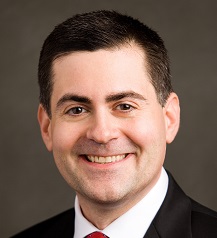By Bob Allen
Two Southern Baptist Convention spokesmen criticized Uganda’s new anti-homosexuality law as government overreach and “unjust persecution” of gays in a commentary on an SBC Ethics and Religious Liberty Commission website.
ERLC President Russell Moore and Andrew Walker, ERLC director of policy studies, wrote a joint op-ed for Canon & Culture, a public-education project of the SBC agency tasked with public policy and religious liberty concerns, criticizing laws that criminalize homosexuality as “an affront to the image of God embedded in all persons.”
 As evangelical Christians, Moore and Walker said they believe that sexuality is to be expressed “only within the one-flesh union of the marriage of a man to a woman” and the Bible teaches that anything else “is a sin against God.”
As evangelical Christians, Moore and Walker said they believe that sexuality is to be expressed “only within the one-flesh union of the marriage of a man to a woman” and the Bible teaches that anything else “is a sin against God.”
They said it is possible, however, for a nation to “teach a positive truth in its laws about marriage and sexuality without prohibiting and targeting its opposite.”
“Not everything that is sinful should be a crime,” they said.
“The Bible tells us that God has given authority to the state to maintain order and to carry out punishment of wrongdoers by the sword (Rom. 13:4),” they said, but “wrongdoers” clearly isn’t equated with “sinners.”
“Since we believe all of us are sinners (Rom. 3:23), the jails would be full and the streets empty because there would be none left unprosecuted, no not one,” they said.
While the police power of the state exists to maintain public safety and order, they said, “Everywhere in the New Testament, the mission of confronting personal sin is given to the church, not to the state.”
Moore and Walker wrote in response to a New York Times article about how anti-gay legislation in places like Uganda and Nigeria complicate international diplomacy.
U.S. Secretary of State John Kerry voiced deep disappointment after Ugandan President Yoweri Museveni signed into law a bill that punishes certain acts of homosexuality with life in prison and bans people from providing services to lesbians, gays, bisexual and transgender people.
“Even up to now, I can’t fully understand how someone can get attracted to a fellow man instead of these beautiful women,” Museveni commented. “It is our view that we punish exhibitionism, recruiters and homosexual prostitutes.”
The bill drew criticism not only from gay-rights and human-rights organizations but also from a top Vatican official in Ghana. The Anglican Church of Uganda threatened to split from the mother church in England if it pressures Uganda to repeal the law.
Several media outlets have reported links to the law first introduced in 2009 to visits to Uganda by influential U.S. evangelists. Scott Lively of Abiding Truth Ministries and author of The Pink Swastika: Homosexuality in the Nazi Party, delivered a talk in March 2009 at a Kampala conference titled “Exposing the Truth Behind Homosexuality and the Homosexual Agenda.” Lou Engle, co-founder of The Call solemn assemblies, preached in Uganda at a rally and prayer service against “homosexuality, witchcraft, and corruption” in 2012.
 Moore and Walker said as Baptist Christians, their own history shows what happens when a state attempts to apply Old Testament law to the civil state.
Moore and Walker said as Baptist Christians, their own history shows what happens when a state attempts to apply Old Testament law to the civil state.
“Our ancestors were whipped, beaten and exiled from Old England and from New England for refusing to sprinkle infants or to pay taxes for Anglican preaching,” they said. “We ought then to be, of all groups, in support of limiting the power of government to see itself as a theological broker.”
They said they agree with Isaac Backus, a leading Baptist preacher during the American Revolution era who campaigned against establishment of a state church in New England. Backus said the state has no business setting up structures to pluck up “tares” from the “wheat-field” of the world, but jurisdiction to punish only works “ill to our neighbor.”
Moore and Walker said Uganda isn’t alone in how it treats homosexuality, citing Islamic regimes that impose harsh penalties, including death, and Russia’s Vladimir Putin, whose supposed “pro-family values” state is instead a government “accustomed to marginalizing unpopular minorities of all sorts (including evangelical Christians and orphaned children) for political gain.”
“Our mission is not to imprison and persecute those who are walking contrary to the Scriptures, but instead our mission is to love and to persuade,” they said. “The devil has come to kill and to destroy. We follow a different way, one that has not come into the world to condemn the world but to save it.”
